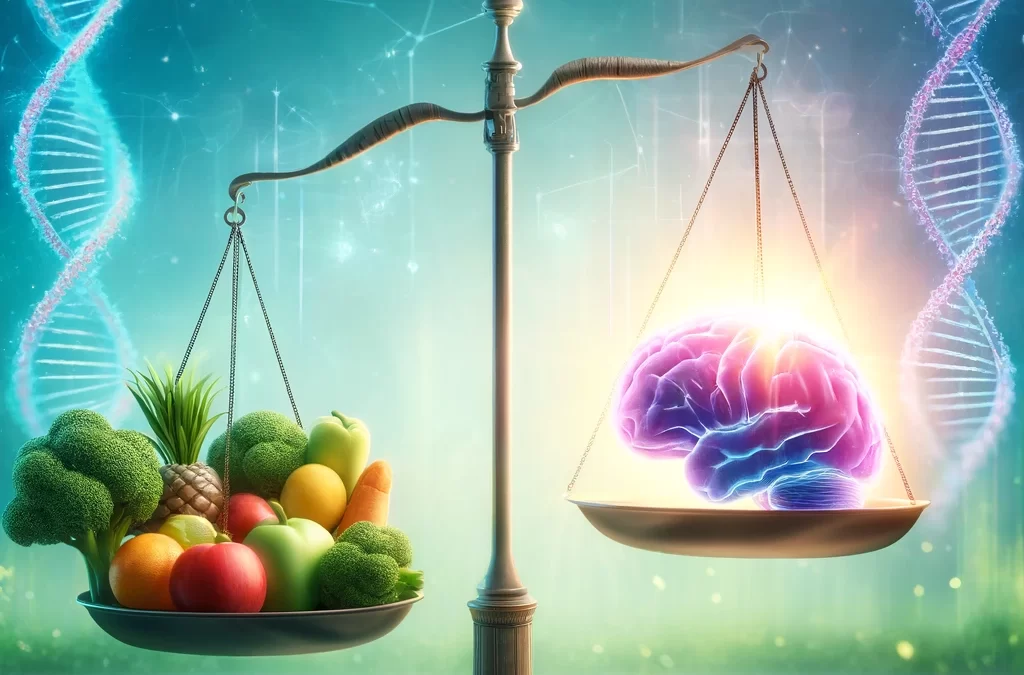Navigating the Temptation of Junk Food with Mindful Eating and Understanding Brain Chemistry
In our day-to-day lives, the allure of junk foods—be it the salty crunch of chips, the sweet comfort of cookies, or the velvety smoothness of ice cream—can often seem irresistible. For those of us striving towards a healthier lifestyle, managing these cravings while keeping a detailed log of our food intake presents a formidable challenge.
But what if we could make this journey easier by tuning into our feelings and understanding the science behind satisfaction? When we eat wholesome foods, like a vibrant salad dressed in oil and vinegar, sugar-light vegetables, and whole grains, or enjoy a meat-free dish, we often feel content. This satisfaction isn’t just psychological; it’s also a result of our body’s neurological responses, such as the release of endorphins and dopamine, which play crucial roles in hunger and pleasure.
Dopamine, a key neurotransmitter, regulates how we feel and act, impacting everything from our social skills to our overall happiness. It’s essential to maintain balanced levels of dopamine for our mental and physical well-being. But navigating the fine line between feeling momentarily content and achieving lasting satisfaction can be challenging. It often requires a deeper understanding of our mental state rather than a mere focus on physical sensations.
The Role of Dopamine in Health and Disease
Interestingly, dopamine levels are intricately linked with conditions such as psychosis, and managing these levels is critical for overall brain health. Medications, particularly those treating psychosis, aim to normalize dopamine levels, demonstrating the profound impact our brain chemistry has on our health.
Maintaining healthy dopamine levels can lead to benefits such as improved self-esteem, appetite control, weight loss, and enhanced social interactions. Yet, it’s not just about the foods we eat or the medications we might take; it’s about understanding the complex interactions within our body and brain.
Homocysteine: A Lesser-Known Factor in Brain Chemistry
Another critical aspect of our brain chemistry is homocysteine, a compound that, when present in high levels, can contribute to aging-related diseases and affect brain function. The balance of homocysteine is thus vital for preventing conditions like schizophrenia and dementia.
Research, including studies from regions like Okinawa, Japan, known for its residents’ longevity and low dementia rates, highlights the importance of a nutritionally rich diet in maintaining optimal homocysteine levels and overall health. Interestingly, these studies also suggest that common genetic variations, influenced by diet, play a role in health outcomes, further emphasizing the significance of our dietary choices.
Towards a Balanced Lifestyle: Mind, Body, and Diet
Embracing a lifestyle that supports healthy dopamine and homocysteine levels involves more than just choosing the right foods. It’s about understanding the intricate dance between our dietary habits and their impact on our brain chemistry and overall health. By becoming more mindful of our eating habits and the feelings they evoke, and by deepening our understanding of the underlying science, we can make more informed choices that lead to a genuinely satisfying and healthy life.
Remember, the journey to a healthier lifestyle is a personal one, and it starts with taking that first, mindful step.

